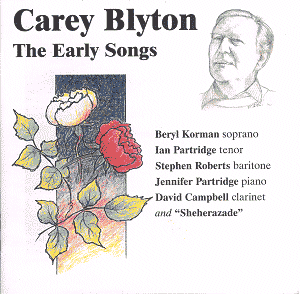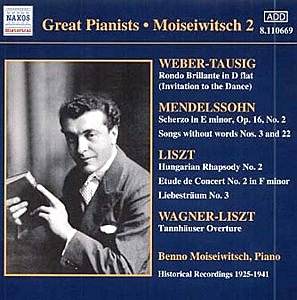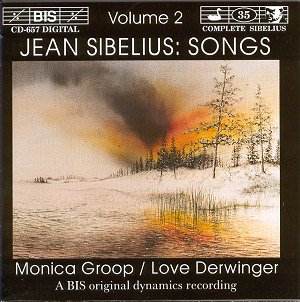 Composer: Carey Blyton
Composer: Carey Blyton
Works: Three A M, Two Pensive Songs, Toi et Moi, Moresques, Symphony in Yellow, The Poetry of Dress, What Then is Love?, The Sea Dog’s Song, Prayers From the Ark, The Flea, The Rose and the Nightingale (arr. from Rimsky-Korsakov), Indigo Blues
Performers: Stephen Roberts (baritone), Ian Partridge (tenor), Sheherazade Beryl Korman (soprano), David Campbell (clarinet), Jennifer Partridge (piano)
Recording: 2000?
Label: UPBEAT CLASSICS URCD 160
Carey Blyton, a composer whose eclecticism defines his contributions to 20th-century British music, continues to receive the attention he merits through ongoing recordings of his output. This latest release, focusing on Blyton’s early songs, offers a rich tapestry woven from diverse influences that reflect his unique ability to merge stylistic elements while maintaining a singular voice. The compilation spans various genres and periods, illustrating Blyton’s adeptness in traversing both popular and classical idioms.
The disc opens with the captivating “Three A M,” a set of five songs that cleverly draw from the popular song traditions of different eras. Here, baritone Stephen Roberts shines, articulating the text with a commanding presence that pairs well with the playful musical idioms Blyton employs. The listener is invited to experience the delightful juxtaposition of musical styles, particularly in the nuanced shifts that characterize Blyton’s melodic lines. Following this, “Two Pensive Songs” showcases the more introspective side of Blyton, with tenor Ian Partridge delivering the Romantic essence of the pieces with warmth and sensitivity. His phrasing is particularly noteworthy, elegantly tracing the emotional contours of the music while remaining grounded in the text’s poetic intent.
In “Toi et Moi,” Blyton channels the elegance of Fauré, with its lush harmonic language and lyrical lines. This is where soprano Beryl Korman’s bright timbre comes into play, navigating the French texts with clarity and finesse. The trio of “Moresques” stands out as a highlight, particularly the final song, which features an enchanting interplay between flute, harp, and piano. David Campbell’s clarinet accompaniment in “Symphony in Yellow” also deserves mention, as it beautifully enhances the exquisite setting of an Oscar Wilde text, creating an atmosphere of romantic longing.
The engineering and production quality of the recording are commendable, capturing the intricate textures of Blyton’s orchestration. The ensemble of flute, harp, and clarinet contributes distinct colors to the overall sound, with the piano accompaniment by Jennifer Partridge proving to be both sensitive and supportive. The recording allows for a clear delineation of each instrument’s contribution, creating an immersive listening experience that does justice to Blyton’s intricate arrangements.
While the singing across the board is of high caliber, it is worth noting that Ian Partridge’s contributions, though limited in this collection, remain impactful, particularly in “The Poetry of Dress,” where his lyrical phrasing is a testament to his interpretative depth. The “Prayers from the Ark,” in contrast, showcases a mid-20th-century stylistic shift, and the performance here is imbued with a sense of reverence that aligns with its thematic content.
This collection serves as a valuable introduction to Blyton’s early works and a testament to his versatility as a composer. The engaging performances, coupled with the thoughtful programming of the songs, create a satisfying narrative arc throughout the disc. As such, this recording is not only a significant addition to the discography of a largely underappreciated composer but also an enjoyable exploration of early 20th-century British song. A recommendation for both seasoned aficionados and newcomers alike is warranted, as this release encapsulates a pivotal moment in Blyton’s artistic journey and showcases the enduring beauty of his music.



